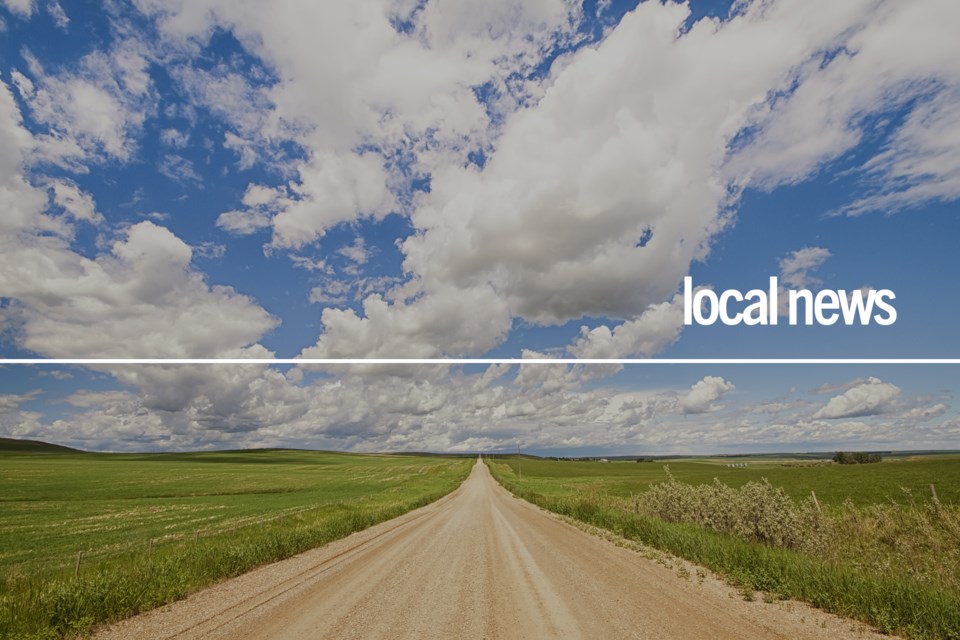SUNDRE - Just about every provincial election seems to be hailed as a potentially historic turning point for Alberta’s future.
But with a political science professor at the University of Alberta asserting that “democracy itself is on the ballot” on May 29, the claim arguably carries more weight than ever before.
Responding to questions during multiple phone interviews, Jared Wesley said when asked if he as an observer of Alberta politics had in recent years seen an erosion between the separations of power, that he had just penned a piece about the subject in a publication called The Conversation.
“Throughout its time in office, the UCP has shown disregard for the separation of powers and the rule of law,” reads part of his analysis, adding the coming election is no longer just about right-leaning, conservative values versus left-leaning progressive values.
“It’s about whether Albertans want to place their trust in democratic institutions or continue to erode the safeguards that protect us from arbitrary abuses of power,” he wrote in the April 18 piece.
Further elaborating his perspective with the Albertan, he said, “It doesn’t matter which side of the border you’re on. These institutions are really only as strong as the people that occupy them.”
For the most part, the Canadian system from the provincial level on up to the federal generally has historically had politicians who recognize as well as honour their roles and more specifically the separations of power put in place by the country’s framers as outlined in the constitution, he said.
“We’ve been fortunate that we’ve had leaders that have respected those boundaries, and have understood and abided by constitutional norms that say, for example, a premier shouldn’t be seeking – in her words – ‘political solutions’ to criminal prosecutions,” he said.
Wesley was referring to Premier Danielle Smith’s controversial conversations with street preacher Artur Pawlowski, who was charged with breaching a release order and mischief for inciting people during his participation in the Coutts blockade.
But the UCP had under former Premier Jason Kenney also previously taken action against then justice minister Kaycee Madu after an investigation found the minister attempted to interfere with the administration of justice after he placed a personal call to Edmonton’s police chief over a distracted driving ticket that he’d received.
Even so, Madu nevertheless retained a position in Kenney’s cabinet of the day and was simply shuffled over to the labour and immigration portfolio before eventually finding himself at the helm of skilled trades and professions when Smith assumed the UCP leadership.
“So there is always that danger,” he said about a leader who might be willing to attempt to influence for personal or political gain the course of an independent judiciary process.
Recalling the meteoric rise of former U.S. President Donald Trump and when the MAGA movement began to gain momentum in the U.S., Wesley said many people were asking whether that could happen in Canada; an outcome he certainly does not outright dismiss.
“In many ways, the capture of at least two of the three branches of government is a lot easier in Canada than it is in the United States,” he said.
“Because the premier typically – in the case of Alberta especially – holds a majority of the seats in the legislature, and as a result kind of wields the power over both (legislative and executive) branches in an effective way,” he said.
“Doesn’t mean the legislature can’t vote the government down; they need to topple the government and force an election. But for the most part, that person wields a lot of power. So, if you get a person who is either too incompetent in a best-case scenario or too nefarious in a bad scenario to abide by these constitutional norms, then we could have a series of very anti-democratic outcomes,” he said.
“And that’s what Alberta has seen over the last three years.”
There are among some voters also common misconceptions between Canada’s constitutional monarchy and the U.S. republic.
“The Canadian system is designed to preserve peace, order and good government,” he said. “And the American system is designed in the name of life, liberty and the pursuit of happiness; now those may just sound like they’re slogans, but they’re actually governing principles.”
Canada’s system was developed and built around the ideal of ensuring the country has strong, stable government capable of preserving the peace and providing orderly representation, he said.
“What does that mean? It means power tends to be concentrated in cabinets, which are drawn from the legislatures, but are still responsible to them,” he explained. “If the legislature disagrees with what the government of the day is doing, they can topple the government.”
That stands in stark contrast to the U.S. model, “where it’s all about peace and liberty; liberty from government overreach,” he said.
“American constitutional framers designed a system that was meant to provide a series of checks and balances among the different branches of the government. So, it’s very difficult for one party to gain control of both houses of congress, let alone the entire legislative branch and the White House and the judiciary,” he said.
“The American system was designed out of real skepticism for the concentration of power,” he said.
“And the Canadian system – built on the British model – is quite the opposite; it’s built with an intent that power should be concentrated and held accountable through our elected representatives.”




